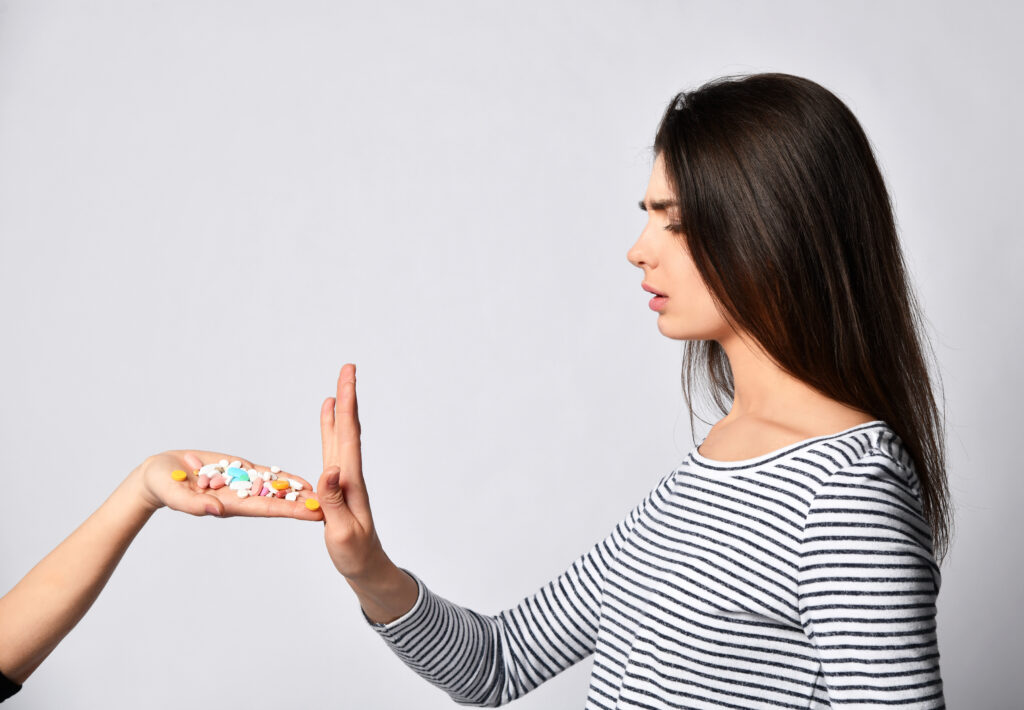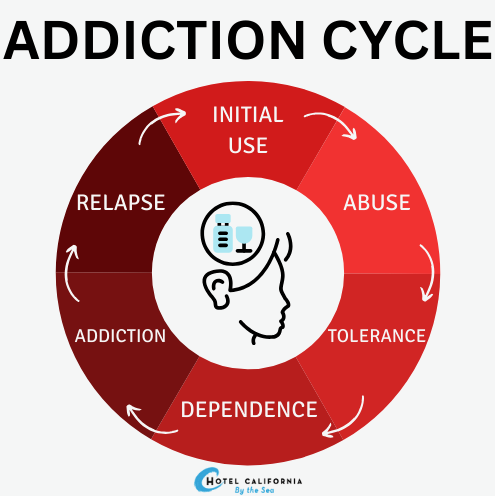Breaking the Cycle of Addiction Activities
Addiction is a disease that impacts the entire family. Addiction is a vicious cycle. Addiction does not discriminate based on race, gender or socio-economic status. According to the Centers for Disease Control and Prevention, more than 20 million Americans struggle with a substance use disorder and not all of these Americans receive the care and treatment they need. Addiction changes the way the brain works. It can lead to physical and psychological changes that convince users the best way to cope with and manage their issues is through continued substance use.

Addiction impacts the dopamine receptors in our brain. A dopamine hit brings on feelings of pleasure and can quickly be followed by feelings of pain. Continued dopamine high keeps the brain and body motivated to keep using in order to not feel pain. Maintaining a healthy balance can be difficult for some. In today’s modern society, we live in a world of abundance. Our brains have yet to evolve to handle extreme levels of dopamine abundance such as sugar, social media or drugs. When our brains are constantly being exposed to pleasure-producing activities that stimulate dopamine in our brain we can develop a tolerance, dependence and eventually an addiction. This starts a dangerous cycle of addiction that can severely impact the user and their community.
Because addiction is a family disease, the most vulnerable who are impacted are children. An estimated 80 million children across the country are impacted by addiction. About 8.3 million children in America live with at least one parent who has an addiction. It can take time for an addiction to develop. Because of this, it can also take time to break the cycle of addiction. Without guidance from professionals, breaking the cycle of addiction activities such as using, withdrawal and relapsing, users and their families will be stuck in the constant trauma of addiction.
Factors that make it difficult to break the Cycle of Addiction
- Emotional Triggers. Emotional triggers are feelings, thoughts or memories that are often deeply rooted in pain or trauma. They can be conscious or subconscious and it can take time for the user to identify the emotional trigger of their addiction. This often leads us to try and suppress or shut down these emotions and thoughts as a protective coping mechanism.
- Cravings. When a user is in the depths of their addiction, cravings can become so intense they consume the user. Using the drug becomes the only important priority,
- Ritual of drug use. Many times during drug use, addicts develop a specific pattern of use. This pattern follows the obtaining of drugs, use of drugs and recovery from drug use. This becomes a repeated ritual during their addiction.
- Guilt. Most often users feel a sense of guilt immediately after using. However, because of the damage to their brain, they are unable to stop and it can trigger the same emotional feelings that further push them to use. This sends the user into the same cycle of drug use.

Ways to break the Cycle of Addiction
- Start by being able to identify the addiction and that there is a problem with your drug use. Addiction can start within weeks, months or years. Reaching out for professional help, treatment and therapy. This can be a challenging task, but being able to admit that there is a problem with your pattern of drug use is the first step towards breaking the cycle of addiction.
- Build a strong support system. Addiction is a family disease. It affects not only the user but the entire community. Surrounding yourself with a network of friends and family willing to help support your journey through recovery can make a world of difference in treatment. Support systems provide accountability and can also take you out of isolation during a time when you might feel the most alone.
- Find a healthy balance and formula for your success. Each individual is unique in their recovery. It is important to develop healthy coping mechanisms that will work for you. Identify, learn and practice alternative and healthy ways to cope with stress and triggers that can set you back into a cycle of addiction. You must address the vital areas of your life: physical well-being, mental well-being, emotional well-being and spiritual well-being.
Remember that addiction recovery is a gradual process that for the most part is ongoing. There will be setbacks along the way. Celebrate each milestone as it comes. This can encourage you to make even the smallest positive changes every day knowing you will no longer continue into the cycle of addiction.
Check Your Insurance Coverage for FREE
Find out if your insurance covers addiction treatment in minutes. We accept most insurance!
Breaking the Cycle of Addiction Activities with Professional Help
Addiction activities often include using drugs, recovering from drug use, experiencing withdrawal symptoms when coming down from drug use and relapsing back into drug use to avoid withdrawal side effects. This process is the vicious cycle of addiction. It can be very difficult to break this cycle. However, with professional help and intervention, users and their families can finally break from addiction.
With professional help, there are several prevention and intervention types of treatment to help families break the cycle of addiction before it causes serious impact. Many programs have one thing in common: training in social competency and coping skills, education and social support for those who are in addiction treatment and for their families and support system. The main goals for many of these programs aimed at breaking the addiction cycle are centered around reducing family stress, increasing social support systems, providing education for learning skills and providing opportunities to develop and increase self-esteem within the addiction user.
- Prevention programs. These types of programs often focus on children of adults who have an addiction. These children have not yet exhibited signs or problems that could trigger an addiction. However, they may be at risk due to genetics and environmental factors.
- Intervention programs. These types of prevention programs target children who have begun to express behaviors that can considered predictive of later substance use disorders. Children have begun to display symptoms of depression, anxiety and difficulties in school. These are often precursor signs that can lead to addiction.
- Emotion-focused programs. These types of programs emphasizes emotional focused coping skills and strategies such as reframing the negative aspect of a situation or distancing themselves from negative situations.
- Problem-focused programs. These types of programs teach coping skills that are related to the problems that arise while living in an addiction-filled home. Such as how to manage when having to explain unusual and uncharacteristic behaviors of their addicted parent to friends, families and outsiders.
- Other types of programs teach social cognitive therapy techniques, resistant skills and competency skills. These help children cope with stress and ultimately reduce the risk of substance abuse and other psychological disorders that are often associated with substance addiction.
Reach out to Hotel California by the Sea
We specialize in treating addiction and other co-occurring disorders, such as PTSD. Our Admissions specialists are available to walk you through the best options for treating your addiction.
Treatment for Substance Use Disorder
Addiction is a mental health disease that occurs in cycles. Breaking the cycle of addiction can be very dangerous and difficult. It is not an easy task. With the help of professional behavioral treatment programs, breaking the cycle of addiction can be more manageable and successful. It can help users and families set health boundaries, know the signs of an addiction relapse and educate all parties on how to cope. Hotel California by the Sea has programs dedicated to helping those with alcohol and substance use disorders.
We treat people in every stage of addiction recovery including detox, residential, PHP and IOP. Our program utilizes effective and rigorous treatment methods such as CBT, DBT, group therapy and family therapy. We specialize in treating co-occurring mental health conditions because often times an addiction can stem from a mental health crisis. Hotel California by the Sea is dedicated to helping our clients achieve their goals of recovery and overcoming their addiction.
References:
https://pmc.ncbi.nlm.nih.gov/articles/PMC6826802
https://www.alysthealth.com/guide-to-breaking-cycle-of-addiction
https://www.npr.org/2022/03/31/1090009509/addiction-how-to-break-the-cycle-and-find-balance
https://www.addictions.com/relationships/families-and-addiction-learning-to-break-the-cycle
https://www.alliedpsychiatry.com/blog/breaking-the-addiction-cycle-4-tips-to-get-started
